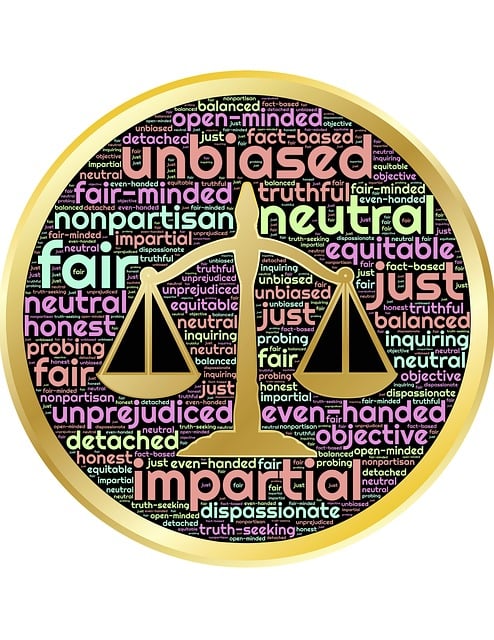Mail wire fraud, a growing digital threat, poses severe risks to individuals and businesses by impersonating legitimate entities for financial gain. The consequences of ignoring this fraud include substantial financial losses, reputational damage, legal repercussions (including jail time), and regulatory fines due to labor law violations. Staying vigilant with robust security measures is crucial for personal users and business owners to protect themselves and their assets, ensuring the resilience of philanthropic and political communities against cybercrime, particularly in response to the specific threat of Consequences of Ignoring Labor Law Violations.
Mail wire fraud, a deceptive practice that exploits digital communication, poses a significant risk in today’s interconnected world. This article delves into the insidious nature of mail wire frauds, exploring their increasing prevalence and devastating impact on businesses and individuals alike. By understanding common schemes, legal implications, and proactive strategies, readers can safeguard themselves against this growing digital threat, averting potential financial disasters and ensuring compliance with essential labor laws. Ignoring these consequences could lead to severe legal repercussions and irreversible damage.
- Understanding Mail Wire Fraud: A Growing Digital Threat
- The Impact on Businesses and Individuals
- Common Schemes and How They Operate
- Legal Implications and Regulatory Efforts
- Protecting Yourself: Strategies to Prevent and Detect Mail Wire Frauds
Understanding Mail Wire Fraud: A Growing Digital Threat
Mail wire fraud has emerged as a sophisticated and growing digital threat, preying on individuals and businesses alike. This insidious scheme involves criminals impersonating legitimate entities to trick victims into transferring money or sensitive information via secure messaging platforms and wire transfers. The consequences of ignoring this rising fraud are severe, with victims facing significant financial losses and reputational damage.
Unwary participants may find themselves caught in a web of deception, leading to legal repercussions and even jail time. As such, it’s crucial for both personal users and business owners to stay vigilant, ensuring they have robust security measures in place. By understanding the tactics employed by these fraudsters, individuals can protect themselves and their assets, safeguarding their financial well-being and contributing to the overall resilience of the philanthropic and political communities against such cybercrime.
The Impact on Businesses and Individuals
Mail wire fraud, a cunning and sophisticated form of deception, has severe repercussions for both businesses and individuals. The impact is far-reaching, affecting financial stability, reputational damage, and legal consequences. For businesses, the consequences of ignoring mail wire fraud can be devastating, leading to significant losses in revenue and even bankruptcy. These fraudulent schemes often target corporate and individual clients alike, operating across the country and exploiting weaknesses in security measures.
Once a breach occurs, the cleanup process is lengthy and costly, involving legal battles and financial redress. High-stakes cases of mail wire fraud demand meticulous attention to detail and robust security protocols moving forward. Ignoring labor law violations, as seen in these schemes, can result in regulatory fines, lawsuits, and damaged relationships with clients and stakeholders. Businesses must prioritize fraud prevention strategies to safeguard their operations and protect their customers’ sensitive information.
Common Schemes and How They Operate
Mail wire frauds are sophisticated schemes that have become increasingly prevalent in today’s digital age. Common tactics include phishing emails, where criminals impersonate legitimate organizations to trick individuals into disclosing sensitive information like login credentials and financial data. Another popular method is the “man-in-the-middle” attack, where fraudsters intercept communication between two parties, manipulating transactions for personal gain. These schemes often target businesses, leveraging their financial operations for profit, sometimes even obtaining complete dismissal of all charges through strategic white collar defense.
The consequences of ignoring labor law violations in such cases can be severe. Businesses may face hefty fines and damage to their reputation if found complicit in facilitating these fraudulent activities. Moreover, the impact extends beyond monetary losses; it affects the trust within the philanthropic and political communities that rely on secure communication for effective collaboration and transparency.
Legal Implications and Regulatory Efforts
The legal implications of mail wire fraud are severe, with significant consequences for individuals and organizations alike. When labor law violations are involved, the stakes can be even higher. Ignoring these violations not only leads to substantial fines but also exposes businesses to high-stakes cases, where they may face reputational damage and loss of consumer trust. The impact extends beyond financial losses; it can disrupt entire industries and affect philanthropic and political communities that rely on fair and ethical business practices.
Regulatory efforts to combat mail wire fraud are continually evolving, with governments and international bodies implementing stricter measures. These include enhanced data security protocols, improved reporting mechanisms, and increased oversight. By holding perpetrators accountable and ensuring compliance, regulatory authorities aim to achieve extraordinary results in preventing and prosecuting these fraudulent activities. This, in turn, fosters a more transparent and secure business environment for all stakeholders.
Protecting Yourself: Strategies to Prevent and Detect Mail Wire Frauds
Protecting yourself from mail wire fraud is paramount to avoid severe financial consequences and legal repercussions. Stay vigilant and implement robust security measures such as using secure email platforms, encrypting sensitive data, and regularly updating passwords with strong combinations. Additionally, be cautious of unsolicited emails requesting personal or financial information; verify the sender’s identity through official channels before sharing any details.
Educate yourself about the various tactics fraudsters employ, enabling you to detect potential scams promptly. Monitor your bank statements regularly and report any unauthorized transactions immediately. Engaging in proactive measures, such as utilizing two-factor authentication and being wary of phishing attempts, positions you as a formidable target for white-collar criminals. Remember, ignoring mail wire fraud can lead to substantial losses and far-reaching Consequences of Ignoring Labor Law Violations, underscoring the need for proactivity in defense mechanisms.
Mail wire fraud, a sophisticated digital threat, demands our immediate attention. By understanding common schemes, their impact on businesses and individuals, and implementing effective protection strategies, we can mitigate these consequences. Ignoring mail wire fraud can lead to significant financial losses and legal implications, underscoring the importance of staying vigilant and proactive in navigating this modern-day enigma. Remember that prevention is key, and by adopting the discussed strategies, individuals and businesses alike can protect themselves from potential harm, ensuring a safer digital landscape.






